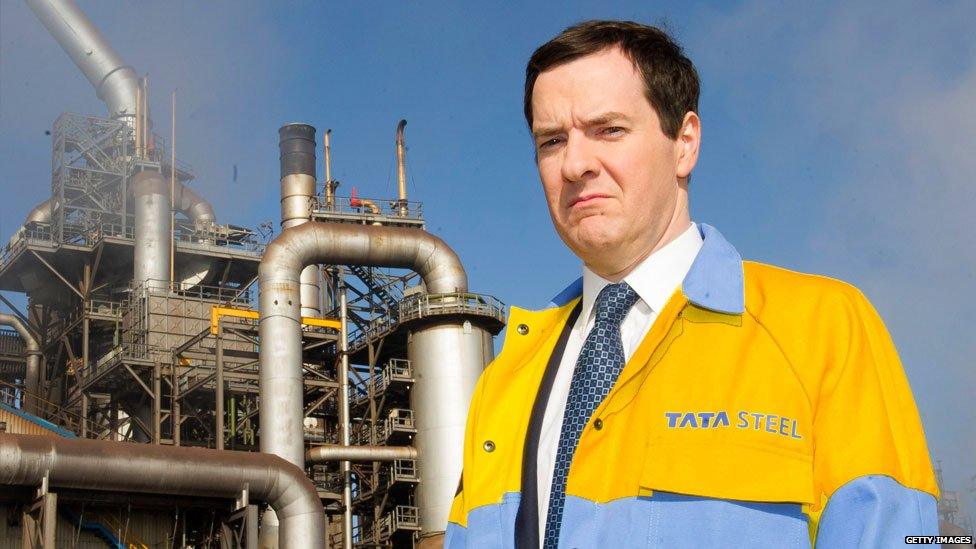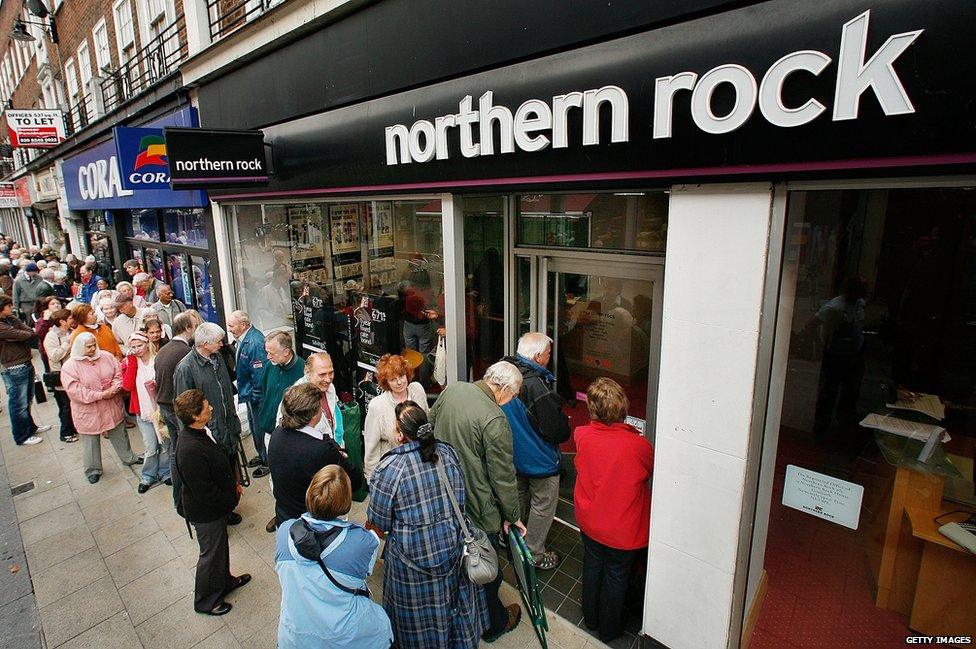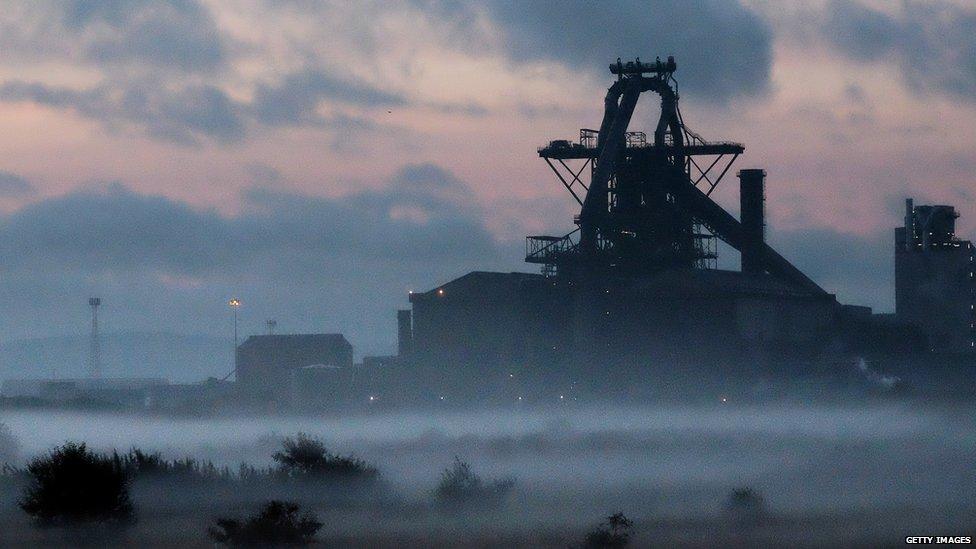Steel v banks: Why they're different when it comes to a government bail-out
- Published

The British steel industry is in a perilous position right now.
Tata Steel is looking to pull out of the UK; they own most of Britain's steelworks.
It's led to mutterings of government intervention, after all they put up the cash to bail out the banks in 2008.
Why shouldn't they do the same for the steel industry?
The thing is, they're totally different situations.
Some of the banks were unable to balance their books with the Bank of England, and some ATMs ran out cash.
The government stepped in and first saved Northern Rock.

Customers queue to take their cash out from Northern Rock
Then it was Bradford and Bingley, closely followed by taking stakes in RBS, Lloyds TSB, HBOS.
The reasons behind the global financial crisis were complex, countless films and documentaries have been made in an attempt to explain why it happened.
Everyone involved in the bailout assumed the banks would recover, and they did (even if it feels like it took forever).
The economy can survive without British steel
The UK is a global centre for banking. Without banks there is nobody to lend money to people to start businesses, or buy homes.
A lot depends on our banks, not just in the UK but around the world.
That's clearly not the same for steel.
One of the problems is the UK industry has been shrinking for a long time. Employment has fallen from around 50,000 in 1990 to under 20,000 today.

Canary Wharf in London is one of the world's major financial centres
Other countries, such as China, make steel, and they do it for cheaper than the UK does. The people in the steel industry and the towns like Port Talbot depend on the steel industry, the loss of the steelworks would have a huge effect on the local economy there.
In October Newsbeat spoke to 17-year-old Harry who had just lost his apprenticeship place at a steel plant in Redcar.
"If you're born in Redcar and lived here all your life this is a major opportunity on your doorstep.
"It's really disappointing. I was really looking forward to working here," he told Newsbeat.
Some of those who live in Port Talbot have been talking about how the steel plant has affected their lives
Plaid Cymru leader Leanne Wood says "This industry is as important to Wales, I would argue, as the banking sector is to the whole of the UK". Labour leader Jeremy Corbyn backs that view, saying that the Port Talbot steelworks are "not expendable".
But the argument is that the rest of the economy can cope without it.
Globally the UK is a major player in the financial market but its steel output is actually fairly insignificant. Britain currently puts out around 12 million tonnes a year; China's output is 822 million tonnes - although the British industry does tend to specialise in high quality, high value steel.

Does it make financial sense?
The government will be weighing up the financial cost of making thousands of people unemployed.
One research group, the Institute for Public Policy Research, estimates that as many as 40,000 jobs depend on the sector. This is why steel is the number one talking point this week.

The steel plant at Redcar which closed last year leading to 1,700 job losses
During the financial crisis UK unemployment peaked at 2.7 million - a little over 8% of the total workforce. If the UK hadn't bailed out the banks it's likely that figure would have been even higher, costing the government huge amounts of money in benefits and lost tax revenue.
The UK has a workforce of around 31 million. Forty thousand is just 0.12% of that workforce. When Port Talbot steelworks is thought to be losing around £1m a day the government may find that number a little more palatable.
The Scottish Government recently bought two moth-balled steel plants in Lanarkshire from Tata before selling them to a private company on the same day.
The Welsh First Minister, Labour's Carwyn Jones, has said he'd consider something like that but admits there are major differences in the scale.
The buy-out in Scotland will secure around 200 jobs. This is about thousands, and the future of the biggest steel plant in Britain.
Read more about what the government could do here.
The government can't legally buy the plants
The prime minister himself, David Cameron, has indicated that the government is unwilling to buy the plants: "I don't believe nationalisation is the right answer".
David Cameron has held talks with key ministers to discuss the steel crisis
Whether it is willing or not might be irrelevant, though, because the UK is a member of the European Union.
By law EU member states cannot rescue failing companies in the steel sector.
These are rules that were agreed by every member of the EU, including the UK.
Exceptions to those rules on bailing out companies exist, but governments have to prove their economy is in danger - that's why politicians allowed the banks to be rescued.
But the EU has decided that allowing failing steel companies to go bust is good for the union as a whole.
But...
Unlikely as it may be the EU does still have the final say so it's not entirely impossible for the government to step in.
The decisions on state aid are often highly political, but ultimately the Commission can decide to approve it.
If any of the 28 member states don't agree they can challenge the decision - and that can take lots more time.
Find us on Instagram at BBCNewsbeat, external and follow us on Snapchat, search for bbc_newsbeat